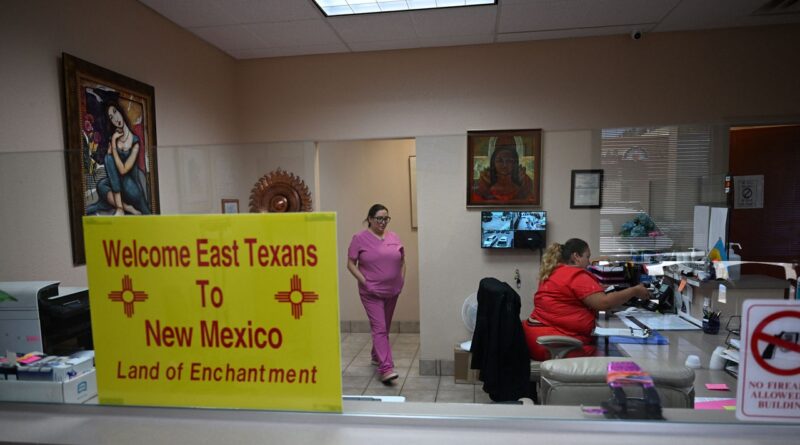Traveling Out of State for an Abortion Is More Expensive Due to Inflation
Even before Roe was overturned, Terry Salas Merritt, a consultant at Jacksonville-based clinic A Woman’s Choice, said she was worried that climbing prices for gas, food and child care were forcing patients to delay their abortions as they scrambled to scrape together money for an appointment.
But the price hikes are coming just as close to 30 million more Americans will be given little choice but to leave their home states if they want an abortion.
“It definitely means the dollars we’ve raised don’t go as far,” said Jaki Lawrence, a spokesperson for the Colorado-based Cobalt Abortion Fund. Because it costs more to help just one person get an abortion, the funds are limited in terms of how many people they can help as need is about to increase.
Even before Friday, Cobalt had been supporting an record level of people traveling to Colorado for abortion care. Since September 1, 2021, when a six-week abortion ban took effect in their state, the state had served as a destination for Texans seeking abortions. On May 2, a similar ban took effect in Oklahoma, the state that had until then absorbed almost half of all Texans leaving the state for abortions. Since then, Cobalt has been supporting an increase in Texas-based travelers as well as Oklahomans now looking for somewhere they can get an abortion.
The price hikes are visible and often shocking. Amanda Carlson, Cobalt’s executive director, recalled buying plane tickets for one woman and her mother. They flew from Oklahoma to Colorado for a one-hour appointment. Round-trip, the airfare cost $1,200.
“A lot of people we serve are low-income. They can’t afford it. Even if it’s $400, that’s a lot of money to come up with for just a flight, plus the procedure cost, plus food,” Carlson said.
Inflation in the health care sector has been slower than in other areas of the economy. But it’s also not immune. Climbing costs for medical supplies are pushing some abortion providers to slowly raise their prices as well. In Chicago, multiple providers announced price increases just this past weekend, Jayifo said. Dr. Kelly Peters, medical director at the Boulder Valley Women’s Health Center, said her clinic too is likely to soon increase its prices for some abortion services. They can’t afford not to.
Abortion funds have reported a major spike in donations since Friday’s Supreme Court decision. But it’s not clear if that will be enough to cover both the increased costs of traveling for abortion care and the heightened number of people who will be making the journey. Multiple clinicians and fund staffers told The 19th they do not believe they will have sufficient resources to pay for everyone who needs financial support to pay for an abortion or for abortion-related travel, lodging and food.
That’s what worries Dr. Kristina Tocce, the medical director for Planned Parenthood Rocky Mountains. Tocce, based in Denver, has already seen the scores of patients traveling to her clinics from Texas and Oklahoma. Some drove 13 hours to make the journey. Others have been on a bus for 24 hours. At this point, that level of travel is almost the norm.
Whenever Tocce sees gas station signs on the roads, she knows what it means for her patients. Every day she is in the clinic, she hears patients worried about how they will afford the trek home. Inflation, she fears, has already made an already burdensome journey even more arduous.
“I routinely hear patients talk about how they are going to finance their gas back home, or the hotel for the evening, or how they’ll get food for the family who traveled with them, or if they’re alone,” she said. “Inflation is going to drastically impact that. It’s heartbreaking to hear the patients stress about this now and know this will only get worse.”
Chabeli Carrazana contributed reporting to this article.




